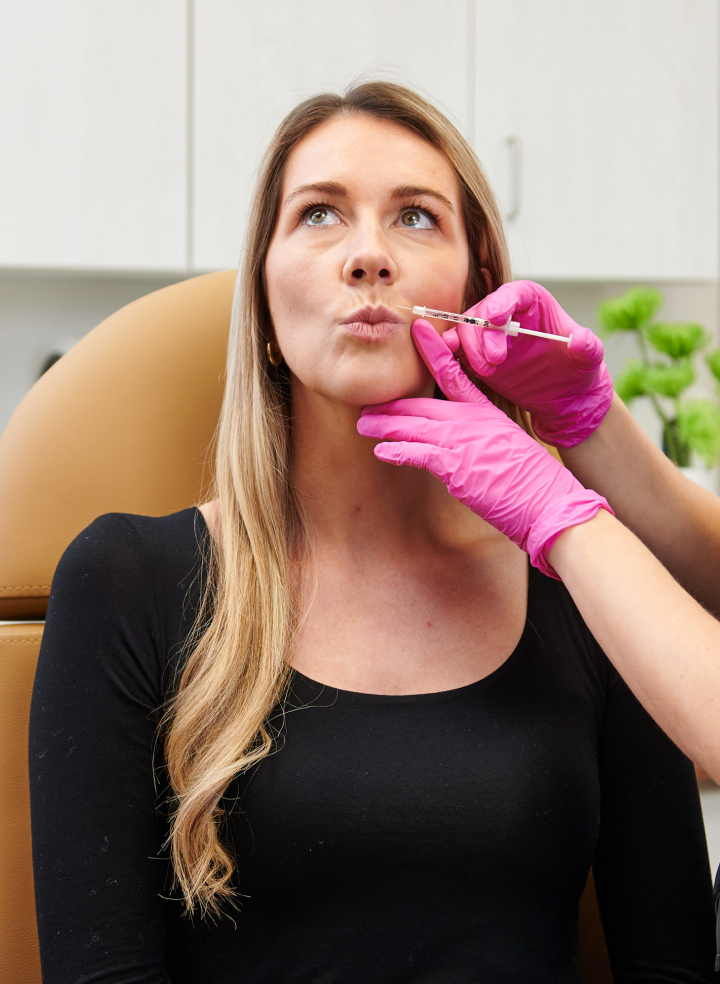Do I need a referral to get Botox?
Botox can help a variety of conditions. We run through when you don't need a referral and when it might be helpful.

While Botox is mostly thought of as a solution to unwanted fine lines and wrinkles it is a versatile tool that can help with a variety of conditions. So, you might be wondering, "Do I need a referral to get Botox?" The answer is... it depends.
The Botox referral myth
In many cases, a referral isn't necessary. Botox is a relatively straightforward procedure, and many doctors, especially dermatologists and plastic surgeons, are well-versed in its administration. However, it's always a good idea to do your research and find a provider who is experienced, board-certified, and has a good reputation.
When a referral might be helpful
There are a few scenarios where a referral could be beneficial:
Complex cases: If you have underlying health conditions or are considering more extensive treatments, a referral can help ensure you're in the right hands
Insurance coverage: Some insurance plans may cover Botox for certain medical conditions such as migraines, profuse sweating and an overactive bladder. A referral from a specialist can help you navigate the insurance process.
Peace of mind: Sometimes, a referral from someone you trust can provide extra reassurance.
Choosing the right provider
When selecting a provider, look for one with demonstrated experience. How long have they been providing Botox and what credentials do the staff have?
Check reviews of the studio to see the kind of experience patients have had in the past - as well as how well the provider handles negative experiences.
Do they offer consultations? These are important, not only to let them assess your needs but also give you the opportunity to ask questions and address your concerns. Consultations should be without obligations and ideally complimentary.
Beyond wrinkles: The versatility of Botox
While Botox is often associated with wrinkle reduction, it has a wider range of applications.
Treat excessive sweating with Botox
Excessive sweating, or hyperhidrosis, can be a significant source of discomfort and embarrassment. Traditional treatments like antiperspirants and medications may not be effective for everyone. In recent years, Botox injections have emerged as a promising option for managing hyperhidrosis.
Botox works by blocking the release of acetylcholine, a neurotransmitter that stimulates sweat glands. When injected into the affected areas, such as the underarms, hands, or feet, Botox temporarily reduces the amount of sweat produced.
Managing migraines with Botox
Chronic migraines can have a profound impact on a person's daily life. Traditional treatments like pain medications may provide temporary relief, but they may not be effective for everyone. In recent years, Botox injections have been shown to be beneficial for some individuals with chronic migraines.
Botox is thought to work by reducing the release of certain neurotransmitters that are involved in migraine pain. When injected into specific areas of the head and neck, Botox can help reduce the frequency and severity of migraine attacks.
“A Botox referral isn’t necessary for aesthetic use,” says Dr. Benjamin Wood, MD, MBA, FACS, and Chief Medical Officer at Chapter. “But if you are looking to target migraines or excessive sweating it is best to consult with a doctor beforehand and check that your provider is trained in those specific treatments.”
Is Botox right for you?
The decision to get Botox is a personal one. It's important to weigh the potential benefits against the risks and costs. If you're considering Botox, here are a few questions to ask yourself:
What are your goals? Are you looking to reduce wrinkles, treat a medical condition, or improve your overall appearance?
Are you comfortable with the procedure? Botox injections are generally considered to be relatively painless, but it's important to be aware of potential side effects.
Have you done your research? Have you consulted with a qualified healthcare provider and gathered information about the procedure?
Empowering Yourself
You may not always need a referral to get Botox, but that doesn’t make the personal decision to go ahead with the treatment any less important. The crucial thing is to feel confident and empowered in your own skin.
If you’re ready to start your Botox journey, book a free consultation today.
